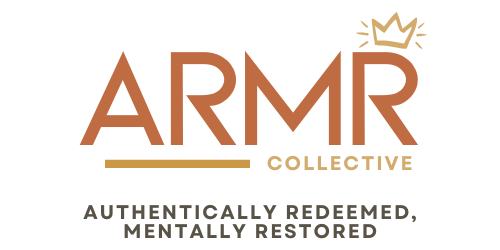I don’t remember exactly when I first experienced a trauma trigger, but I do remember how it felt. One moment I was fine, the next my heart was racing, my chest tight, my thoughts scattered like leaves in a windstorm. Something harmless – a smell, a phrase, a location – had catapulted me back to a painful memory, and suddenly I wasn’t fully present anymore. I was caught between two worlds: the safe present and the threatening past.
Trauma triggers can feel like betrayal from your own mind and body. They arrive uninvited, unwelcome, and often when you least expect them. And in Christian circles, they’re frequently misunderstood or, worse, dismissed with well-intentioned but harmful spiritual platitudes.
What Happens During a Trigger
When we experience trauma, our brain processes it differently than normal memories. The event gets stored in our amygdala – the brain’s emotional center – with all its sensory details intact. During trauma, adrenaline floods our system, essentially burning these memories into our brain in a way that bypasses our normal cognitive processing.
That’s why triggers can feel so overwhelming and immediate. They’re not just memories – they’re full sensory experiences your brain is reliving as if they’re happening right now. The logical part of your brain that knows you’re safe in the present moment gets temporarily disconnected from the emotional part that’s sounding all the alarm bells.
The Enemy’s Whispers vs. God’s Truth
The enemy loves to use our trauma against us. When we’re at our most vulnerable, those moments when a trigger has knocked us off balance, he slips in with whispers designed to keep us trapped in our pain. I’ve heard these whispers myself, and maybe you have too.
“You’ll never heal from this,” he whispers when the nightmares return just as you thought you were getting better.
But God draws near and reminds us: “He shall cover you with His feathers, and under His wings you shall take refuge.” When I’m triggered, I imagine myself literally crawling under His wings, a place where the enemy’s voice can’t reach me.
“God doesn’t really care about your emotional pain,” comes the whisper when prayers seem to go unanswered.
Yet Jesus Himself invites us: “Come to Me, all you who labor and are heavy laden, and I will give you rest.” Not “get over it and then come to Me,” but “come as you are, with all your pain.”
“If God were truly good, He wouldn’t have let this happen,” the enemy suggests during our darkest moments of grief and confusion.
But Joseph’s words to his brothers who sold him into slavery echo through time: “You intended to harm me, but God intended it for good.” This doesn’t minimize our pain or suggest God caused our trauma, but reminds us that He can redeem even our deepest wounds.
“This trauma has permanently broken you,” the whisper continues. “It’s always going to define who you are.”
God’s promise contradicts this: “Old things have passed away; behold, all things have become new.” Our trauma is part of our story, but it doesn’t have to be our identity.
“You need to handle this alone. No one will understand anyway,” comes the isolating lie when we consider reaching out.
The Bible gently corrects this thinking: “And let us consider one another in order to stir up love and good works.” We were never meant to heal in isolation.
These aren’t just nice verses to memorize. They’re lifelines to grab onto when the waves of triggering memories threaten to pull you under.
The Path Through Trauma
Healing from trauma isn’t a straight line. It’s messy and complicated and deeply personal. Trauma recovery often looks like:
Initially feeling like your entire world has shattered, like nothing will ever be the same. Because truthfully, it won’t be – trauma changes us.
But different doesn’t have to mean destroyed.
Cycling through periods where you feel fine and periods where the pain feels as fresh as the day it happened. This isn’t a sign of failure – it’s normal.
Experiencing moments when everyday things suddenly become threatening – a song on the radio, a certain tone of voice, even particular weather can suddenly send you spiraling back into traumatic memories.
Wanting to avoid anything that reminds you of what happened, sometimes to the point of restructuring your entire life around these avoidance patterns.
Finding yourself constantly on edge, jumping at small noises, unable to relax, always waiting for the next bad thing to happen.
Questioning your worth, your decisions, your understanding of the world and yourself. Trauma has a way of making us rethink everything we thought we knew.
Pulling away from relationships, even as you desperately need connection, because trust feels like too great a risk.
And eventually, with support and time, finding your way to a new normal.
Not erasing what happened, but integrating it into a larger story of resilience and hope.
Healing Requires Both Truth AND Emotions
Healing from trauma requires balance – both acknowledging the emotional reality of our pain AND embracing the logical truth of God’s promises. One without the other leaves us lopsided.
If we focus only on emotions, we can get swept away by them. If we focus only on truth while ignoring our emotions, we’re just slapping spiritual band-aids on deep wounds.
True healing happens when both sides work together: when our emotions are validated and processed while our minds are renewed with truth. This integration allows us to experience the fullness of God’s healing.
Acknowledging a trigger isn’t weakness – it’s strength.
It’s the first step toward reclaiming your narrative and fostering healing. When you name what’s happening (“I’m being triggered right now”), you begin to separate the present from the past, creating space for new responses.
Practical Steps for Managing Triggers
- Grounding techniques: When triggered, focus on your five senses to anchor yourself in the present moment. What are five things you can see? Four things you can touch? Three things you can hear? Two things you can smell? One thing you can taste?
- Challenge negative beliefs: Identify the lies that surface during triggers and counter them with specific truths from Scripture. Write these down so they’re ready when you need them.
- Gradual exposure: With professional support, gradually approaching trauma-related memories or situations in small, manageable doses can help your brain reprocess them.
- Patient self-kindness: Healing isn’t linear, and recovery takes time. Treat yourself with the same grace and compassion you would offer a dear friend.
- Professional help: Trauma often requires specialized help. Therapies like EMDR, cognitive processing therapy, or trauma-focused CBT are specifically designed to help your brain process traumatic memories.
A Final Thought
Your trauma triggers can actually become opportunities for growth. As you learn to navigate them, you develop resilience and strength you never knew you had. The emotional pain that once disconnected different parts of your brain can eventually lead to new connections and deeper healing.
Remember that Jesus Himself bears scars. Even in His resurrected body, He chose to keep the marks of His wounds. They didn’t diminish His victory – they testified to it.
In the same way, your trauma doesn’t disqualify you from wholeness.
With time, support, and God’s healing presence, what the enemy meant for harm can become part of your testimony of God’s faithfulness.
You’re not alone in this journey.
Your triggers don’t define you.
And healing, though not always straightforward, is possible.
Be patient with yourself.
Trust the process.
And never forget that God is with you every step of the way, holding you close when the triggers strike.
What has helped you most in dealing with trauma triggers? I’d love to hear your experiences in the comments below. And if you’re currently struggling with triggers, please know you’re not alone – this community is here for you.




One thought on “Trauma Triggers: A Journey of Faith and Healing”